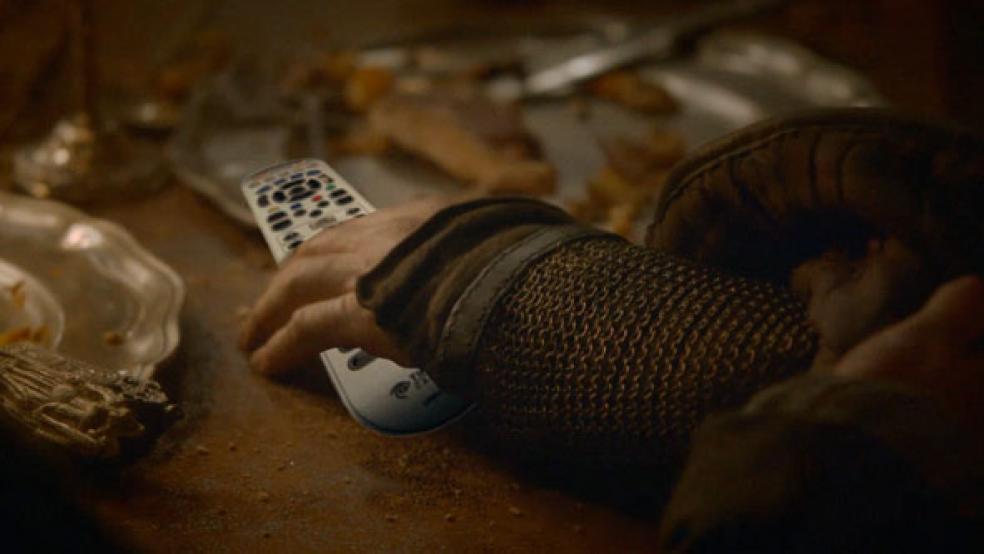On Sunday night I, along with millions of other viewers across the country, will be riveted to my TV watching the Season 3 finale of “Game of Thrones.” Then Monday morning, before I race to the water cooler to discuss the craziness I witnessed the night before, before I read the countless breathless reviews and fanatical Internet discussions of what happened and what might happen next season, before I do any of this, I will be placing a call to Cablevision to cancel my HBO subscription.
It is already clear that last week’s episode will be counted among the great shocking moments in television history. The answer to “Who shot J.R.?” and the revelation of Laura Palmer’s killer’s identity will be joined by the Red Wedding, in which HBO, mostly following George R.R. Martin’s narrative, locked its show’s ostensible “heroes” in a room and brutally slaughtered them. With the third season of “Game of Thrones” over and new episodes only set to start filming next month, will subscribers be as merciless to their cable companies?
RELATED: Why You’ll Never Watch TV the Same Way Again
I watched the first season of the hit show when a friend lent me the discs that he had ripped from his DVR. I watched the entire 10-episode season in about three days. This led me to subscribe to HBO in March of 2012, so I could watch the second season as it happened. When that season ended I kept my HBO subscription, thinking that perhaps I’d go back and give “Boardwalk Empire” a chance, or re-watch “The Wire,” or maybe just catch all of the movies that I never got around to seeing…but the reality was that I hardly ever flipped to HBO from June to late March. Effectively, I wasted $200 to avoid having to make two slightly awkward customer service calls, eight months apart.
The past two years has seen “Game of Thrones,” with its exploding popularity, become the banner cause for the “Cut the Cord” revolution. With acclaimed TV hits like AMC’s “Mad Men” and “Breaking Bad” long available for streaming on Netflix, “Game of Thrones” remains the only one of the zeitgiest shows to be unavailable to non-cable subscribers, through legal sources at least (it was the most-pirated show of 2012 and its third season premiere set a new piracy record).
Like all HBO content, “Game of Thrones” cannot be streamed through Netflix, Hulu or Amazon. It can, of course, be streamed through the network’s impressive “HBO Go” app, but that service is only available to those who subscribe to the channel through a traditional cable TV provider. The sharing of HBO Go logins has become the modern equivalent of swapping bootleg tapes.
Network executives have typically shrugged off questions about allowing users to subscribe to the app independently, the subtext being, “The sweetheart deal we get from the cable providers is a more sure-fire revenue stream than we think we could make on our own.”
Cable companies, in turn, know that allowing HBO to go solo would be devastating to their business model. No one pays ala carte for HGN, The Smithsonian Network or Animal Planet. They pay to watch Walter White cook meth, to see Don Draper sleep around and to watch the Starks fall face-first into a brutal trap. But from the cable companies’ point of view, those “value-added” channels are additional advertising slots, additional production budgets and additional jobs. To misuse an off-color metaphor, cable companies know we won’t buy the cow if we could get the milk for free.
If enough subscribers behave as I do, pulling the plug on their subscriptions Monday morning, will HBO reconsider this position? Or will the arranged marriage between viewers and their cable companies be forced to continue after the carnage?





